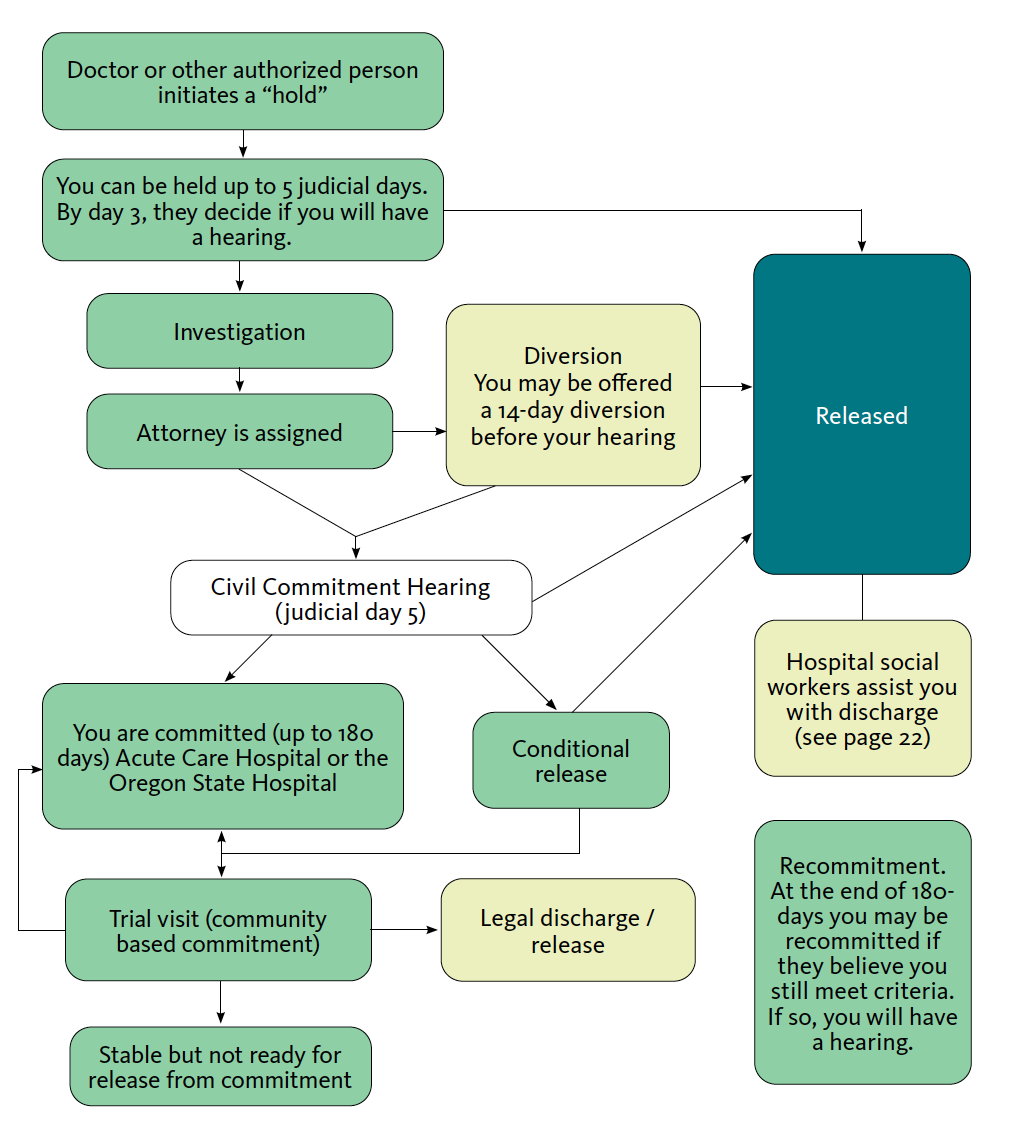It’s funny, or maybe not so funny, how you can live your whole life in a place like Oregon and not know squat about certain things until they slap you in the face. Take these 72-hour mental health holds. Heard the term? Maybe. Actually understood what it meant? Not a chance, not for me anyway, until a few years back.
This whole thing came crashing into my world because of my cousin, bless his heart. He was going through a real rough patch. I mean, real rough. We all were worried sick. One evening, it just… it boiled over. I was the one there, and I had to make some tough calls. That’s when I first got a crash course in what a ‘director’s hold’ or ‘police officer hold’ – which is what can lead to this 72-hour thing – actually involves. Right here in Oregon.

So, the first thing I learned, and it’s a biggie, is that this 72-hour mental health hold isn’t just some casual timeout. It’s serious. It means someone, usually a professional, believes a person is a danger to themselves or others, or can’t take care of their basic needs because of a mental health issue. They can then be taken to a treatment facility, whether they want to go or not.
The Clock Starts Ticking… Sort Of
And that 72 hours? It’s not like a timer on an oven. What I saw firsthand was that this period is for evaluation and treatment. They told us it’s ‘up to 72 hours.’ So, it could be less if the person stabilizes, which is what you’re hoping for. But also, and this was a real eye-opener for me, those hours usually don’t include Saturdays, Sundays, or legal holidays once they’re admitted. So, if someone goes in on a Friday afternoon, well, you do the math. That waiting game, man, it’s tough. I remember just sitting there, feeling helpless, just wanting answers, wanting to know he was okay.
Involuntary Means Involuntary
The other part that really stuck with me was the ‘involuntary’ bit. My cousin, he wasn’t exactly thrilled about being there, you know? Understandable. But at that point, it wasn’t really about what he wanted. It was about getting him to a safe place where he couldn’t hurt himself or anyone else. The hospital folks, the mental health professionals, they have the legal right to keep someone if they meet the criteria. That was hard to wrap my head around at first, seeing someone I care about not having a say in what was happening to them. But I got it. When things are that bad, sometimes those decisions have to be made for someone.
- They did assessments, lots of talking.
- They tried to figure out what was really going on underneath it all.
- They started looking at treatment options, what could help him get stable.
My role in all this? Mostly just being there. Bringing him some familiar stuff from home once they allowed it – clean clothes, a book. Trying to be a calm presence, which, let me tell you, wasn’t easy when your own insides are churning. I learned a lot about just listening, and about how complex mental health crises are. It’s not black and white, that’s for sure. There are so many shades of grey.
The Aftermath and What I Took Away
Thankfully, in his case, they didn’t need the full stretch of time. He started to respond to the help he was getting, and a plan was made for ongoing support. But those few days, they were an education I never asked for but definitely got. It showed me there’s a system in place, imperfect maybe, but it’s there when things go completely off the rails. And it made me realize how important it is to talk about this stuff, to know what resources are out there, even if you hope you never, ever need ’em. Because when you’re in the middle of it, you’re just trying to keep your head above water. That was my ‘practice’ with it, my front-row seat to how a 72-hour mental health hold works here in Oregon. Not something you forget.














